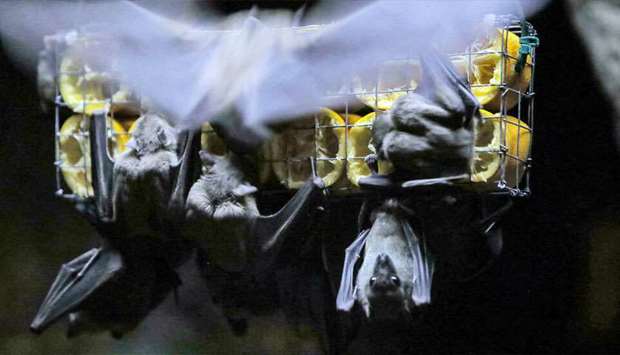Guinea confirmed a case of Marburg disease, the World Health Organisation said on Monday, the first recorded in West Africa of the lethal virus that’s related to Ebola and, like Covid-19, passed from animal hosts to humans.
The virus, which is carried by bats and has a fatality rate of up to 88%, was found in samples taken from a patient who died on August 2 in southern Gueckedou prefecture, the WHO said. “The potential for the Marburg virus to spread far and wide means we need to stop it in its tracks,” said Dr Matshidiso Moeti, WHO Regional Director for Africa. The discovery comes just two months after the WHO declared an end to Guinea’s second outbreak of Ebola, which started last year and claimed 12 lives.
In Geneva, the WHO said it considered the threat “high” at the national and regional level, but “low” globally. “We are working with the health authorities to implement a swift response that builds on Guinea’s past experience and expertise in managing Ebola, which is transmitted in a similar way,” Moeti said. The Guinean government confirmed the Marburg case in a statement. Marburg virus is usually associated with exposure to caves or mines housing colonies of Rousettus bats. Once caught by a human, it is spread through contact with bodily fluids of infected people, or with contaminated surfaces and materials, according to the WHO. “We applaud the alertness and the quick investigative action by Guinea’s health workers,” Moeti said.
The case was detected in a village in a forested region close to the borders of Sierra Leone and Liberia. The man’s symptoms date back to July 25, the WHO said. After being initially treated at a local clinic and tested for malaria, the patient died “in the community”, the WHO said. Post-mortem samples then tested negative for Ebola, but positive for Marburg.
Ten WHO experts, including epidemiologists and socio-anthropologists, are already in the field to support national health authorities. The emergency response includes risk assessment, disease surveillance, community mobilisation and screening, clinical care, infection control and logistical support, WHO said.
Cross-border surveillance has also been stepped up so that possible cases can be quickly detected, it said. Three family members of the deceased and a healthcare worker have been identified as high-risk close contacts and are being monitored, while investigations are under way to identify the source of the infection and any other possible contacts, the WHO said. Previous outbreaks and sporadic cases have been reported in South Africa, Angola, Kenya, Uganda, and the DRC. But this is the first time the virus has been detected in West Africa. The disease begins suddenly, with a high fever, severe headache and discomfort. Fatality rates have ranged from 24% to 88% in previous outbreaks, depending on the virus strain and case management, the WHO says.
• Ebola’s deadly cousin
How is it transmitted?
The natural “reservoir,” or host, of the Marburg virus is the African fruit bat. The cave-dwelling mammals carry the virus but do not fall sick from it, and can hand the virus to primates in close proximity, including humans – one suspected pathway is the killing or butchering of infected bats for food. Human-to-human transmission then occurs through contact with blood or other bodily fluids, or contact with surfaces such as bedding or clothing that are contaminated with these fluids. Some infections have happened accidentally in the lab, through needle wounds.
What are the symptoms?
The virus takes between two and 21 days to incubate, leading to abrupt symptoms of high fever, severe headaches, muscular pain, vomiting and diarrhoea – symptoms that can make Marburg difficult to diagnose initially, as they are similar to diseases such as typhoid and malaria. Haemorrhagic episodes typically follow between five and seven days later, with blood in the vomit and faeces and bleeding from the nose, gums and vagina. In fatal cases, death occurs most often between eight and nine days.
What treatments are available?
There are no vaccines or antiviral treatments for Marburg disease. Rehydration with oral or intravenous techniques improves survival and experimental use of monoclonal antibody drugs has been promising. This is why it is crucial to stamp out the disease from the outset, say experts. “You have to step up surveillance, identify all contact cases in order to isolate them if they start developing the disease, to prevent any transmission,” said Ousmane Faye, a virologist at Pasteur Institute in Dakar, Senegal.

